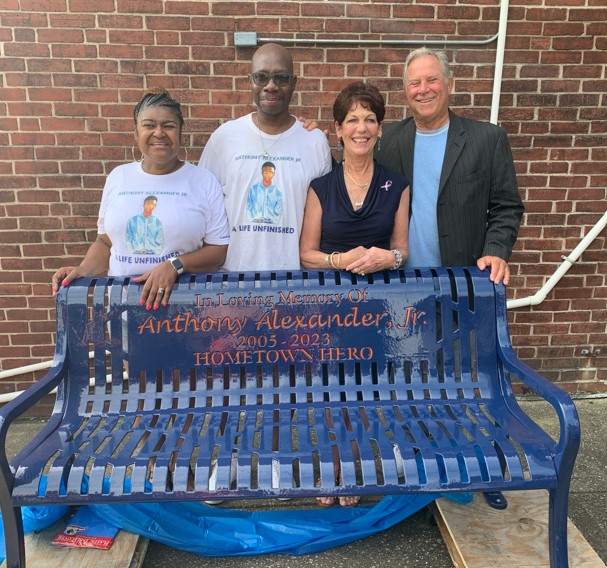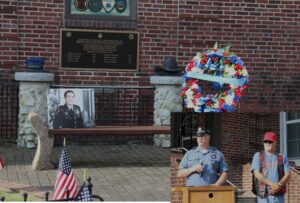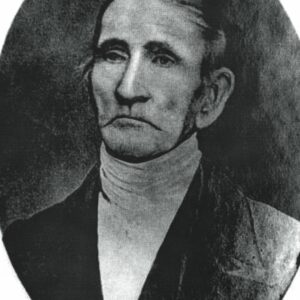Heroism Was the Theme of Collingdale Patriot Day Ceremony

From a press release
On Saturday, Collingdale had its Patriot Day, held at the Collingdale Community Center. It was a tribute remembering all who died on Sept. 11, 2001, at the World Trade Center, the Pentagon and United Airlines Flight 93.
Collingdale Police Cpl. William Carter welcomed guests who attended and gave a speech about 9/11 and a tribute speech about the heroic sacrifice of Cyril Richard “Rick” Rescorla, of Newark, N.J. Rescola was working at the World Trade Center that fateful day.
Rescola was working as vice president of security at Morgan Stanley Dean Witter & Company, in the South Tower, of the World Trade Center. When American Airlines Flight 11 struck the North Tower, Rick reacted according to the training he had and the plans he developed following the 1993 terrorist on the World Trade Center. Against the advice of officials, he ordered an immediate evacuation of all 2,700 Morgan Stanley Dean Witter & Co. employees from the building and led them to safety.
After those employees evacuated, United Flight 175 hit the South Tower. Rescola then re-entered the building to search for survivors. He was never seen again. Due to Rescola’s heroic actions, more than 2,700 lives were saved that day. The extraordinary courage and selflessness displayed by Rick Rescorla is an inspiration and credit to the state of New Jersey and to his fellow Americans.
All but 13 of his staff survived the 9/11 attacks.
On March 25, 2009 Rick Rescorla was awarded the Above and Beyond Citizen Honor Award. Living members of the Congressional Medal of Honor Society along with Rick’s children accepted his Honor on his behalf.
“As we remember and share stories of bravery, honor all those who died on September 11, 2001, at the World Trade Center, The Pentagon and on United Airlines Flight 93. Show support to all defenders of our freedom past, present , and future. This is our duty,” Carter said.

Collingdale Memorial with photo of Cyril Richard “Rick” Rescorla, and wreath presented in memory of 9/11. Insert photo: Cpl. William Carter, Collingdale Police Dept. and Jim Dawson president, of the 2nd Brigade Motorcycle club, of VFW Post 598, of Darby. (Photo courtesy of Joy Winner.)
“In the words of Rick Rescorla: ‘Today is a day to be proud to be an American.'” Carter said.
During the ceremony, Collingdale Mayor Donna Matteo-Spadea led the “Pledge of Allegiance” and Bill Burns, of the First Baptist Church of Collingdale, sang the National Anthem. And a “Never Forget 9/11” Wreath was placed, by Sgt. Patrick Kilroy at the Collingdale Memorial Site.
Tom Heckman played “Amazing Grace” on the bag pipes.
The Rev, Perry Messick of the First Baptist Church of Collingdale gave the closing prayer.
A park bench honoring Anthony Alexander Jr. was unveiled by Anthony Alexander Sr. and Ava Alexander, in memory of Alexander, Jr.
Alexander Jr. who was honored, with the Citizen Honors Award, for his heroism in saving three young children, who were in danger of drowning, in a pond, at the Collingdale Park on February 21, 2022, was remembered with a bench, unveiled at the ceremony.
His life was cut short by an accidental gunshot last January. He was watching an Eagles game with his friends and they were playing with a loaded gun, at a party. Anthony passed away January 29, 2023.
The Alexander family will have a dedication of the bench, in the near future, at the Collingdale Park.



